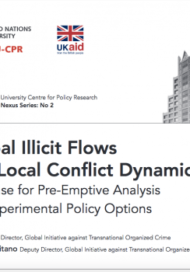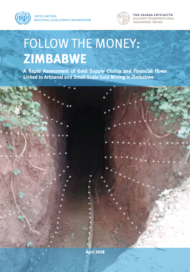Posted on 17 May 2011
This paper explores the scale and composition of illicit financial flows from the 48 Least Developed Countries (LDCs). Illicit financial flows involve the cross-border transfer of the proceeds of corruption, trade in contraband goods, criminal activities and tax evasion. In recent years, considerable interest has arisen over the extent to which such flows may have a detrimental impact on development and governance in both developed and developing countries alike.
This issue has been recognised by the UN as important for development and achievement of the Millennium Development Goals (MDGs). Illicit capital flight, where it occurs, is a major hindrance to the mobilisation of domestic resources for development. In many cases, it significantly reduces the volume of resources available for investment in the MDGs and productive capacities. Through the United Nations, the international community has committed to strengthen national and multilateral efforts to address it. As the deadline for achievement of the MDGs draws closer, it is vital understand more about the nature of this problem and to explore possible policy solutions, especially for those countries furthest off-track towards the MDGs.



